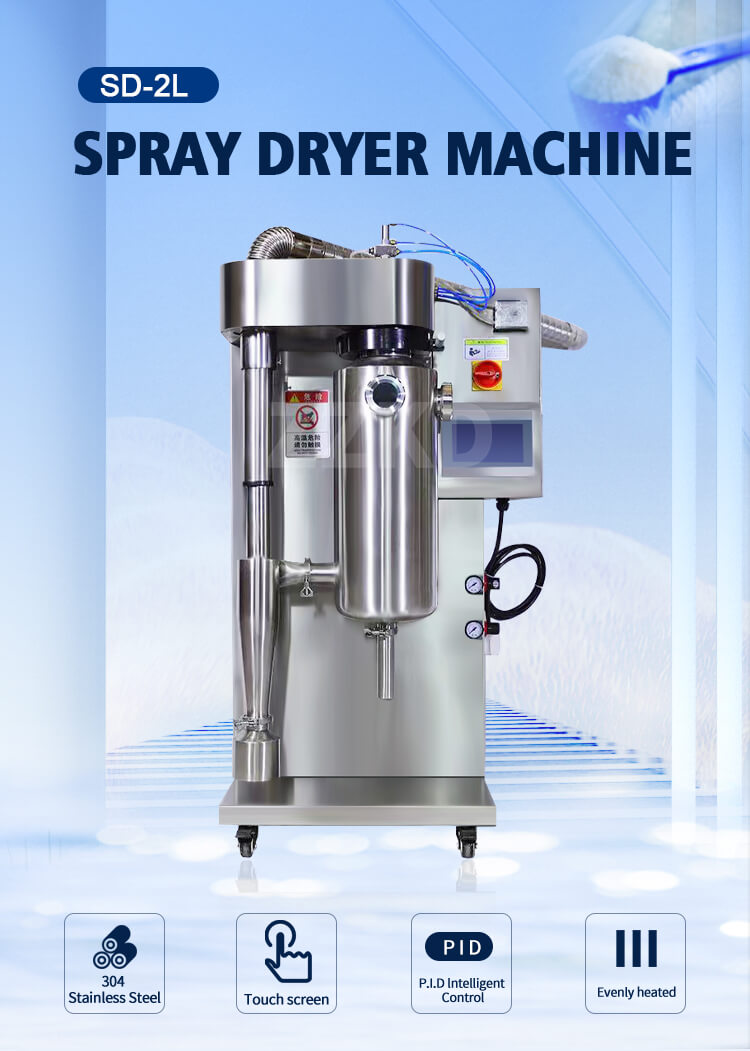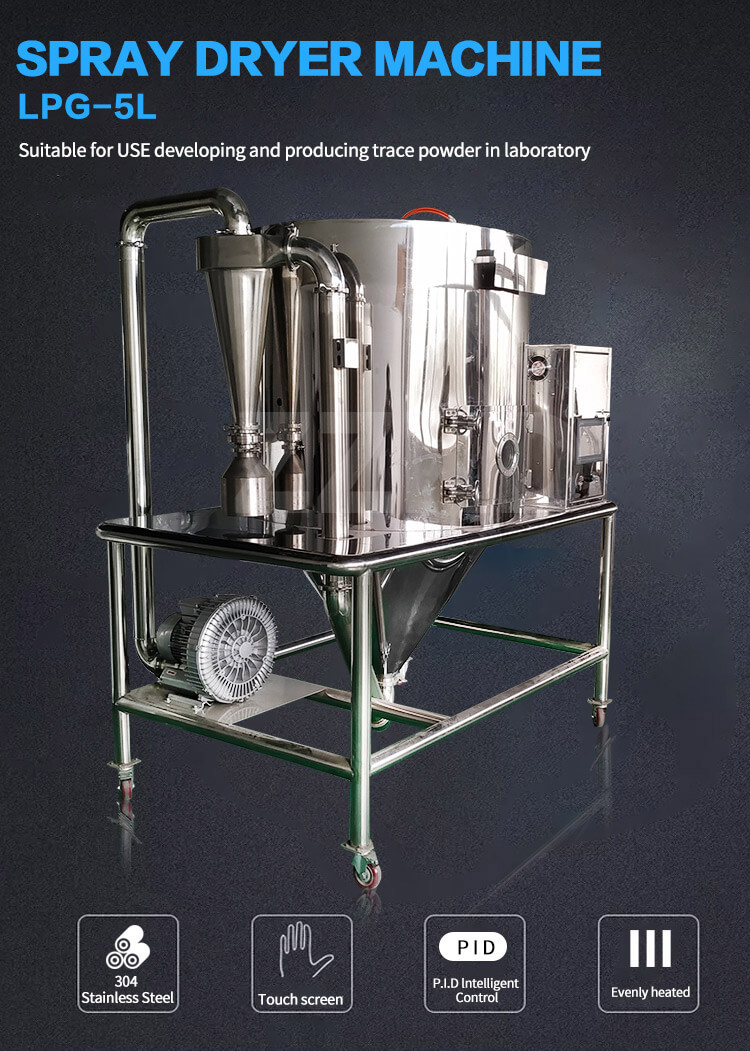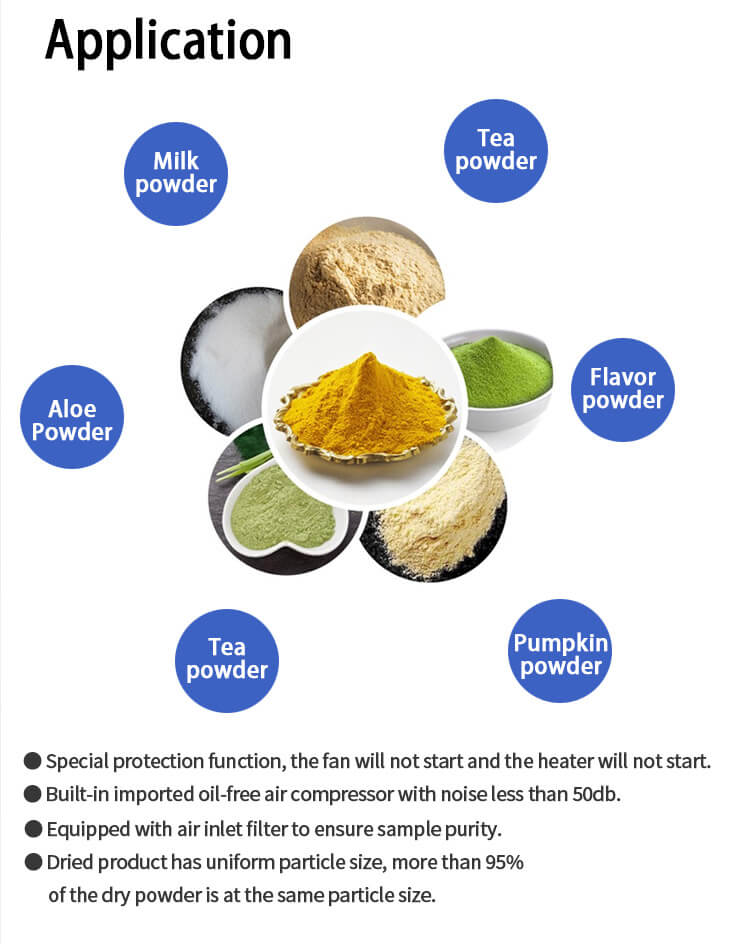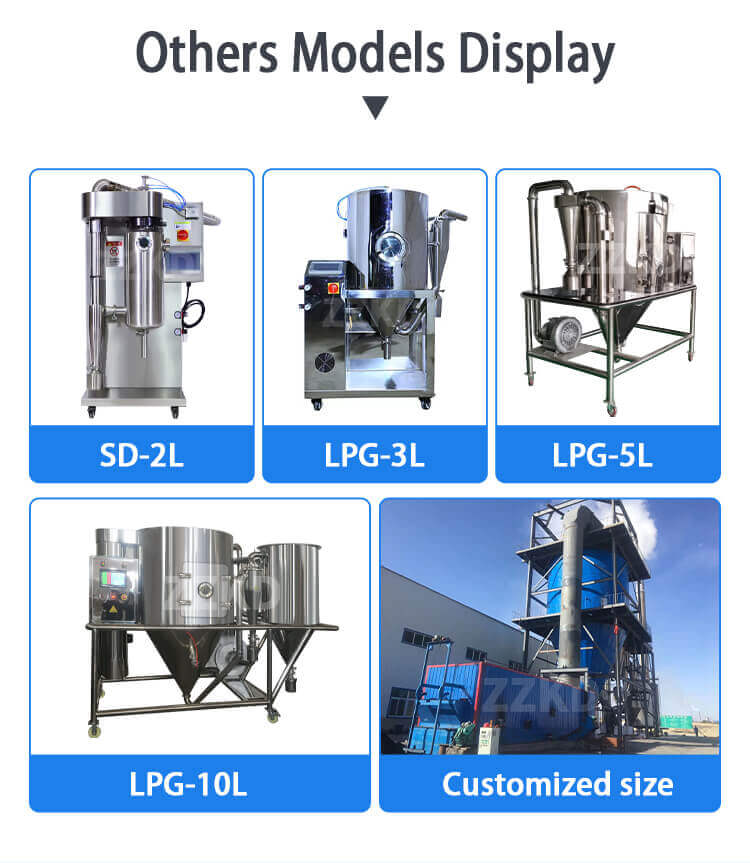Lab Scale Spray Dryer are essential equipment in various industries, including pharmaceuticals, food, and chemical processing. They are designed to transform liquid products into powder form by evaporating the solvent using heat and air flow. In this article, we will discuss the common uses of spray dryer in different sectors.
1. Pharmaceutical Industry
The pharmaceutical industry is one of the primary users of spray dryers due to their ability to produce stable and consistent powder formulations. Spray drying is commonly used for the production of drugs, vaccines, and other pharmaceutical products. It helps in reducing particle size, improving flowability, and enhancing stability, which are crucial factors for drug delivery systems.

2. Food Industry
In the food industry, spray dryers are used to produce dried fruits, vegetables, dairy products, and meat products. The process helps in preserving the nutritional value, flavor, and color of the food products while reducing the moisture content. Spray drying is also used for producing instant coffee, tea, and soup mixes.
3. Cosmetic Industry
Spray dryers play a vital role in the cosmetic industry by producing fine powders for various applications such as sunscreens, foundations, and blushes. The process helps in improving the texture, consistency, and appearance of the final product. Spray drying is also used for producing microencapsulated fragrances and active ingredients that can be easily dispersed in cosmetic formulations.

4. Chemical Industry
The chemical industry utilizes spray dryers for producing fine powders for various applications such as catalysts, pigments, and detergents. Spray drying is an efficient method for removing solvents from chemical solutions, resulting in a dry powder with improved properties. The process is also used for producing nanoparticles and microencapsulated chemicals for specific applications.
5. Environmental Protection
Spray dryers are used in environmental protection for treating wastewater and air pollutants. The process helps in converting liquid waste into a dry powder form that can be safely disposed of or recycled. Spray drying is also used for producing activated carbon from biomass for air purification purposes.
6. Agriculture
In agriculture, spray dryers are used for producing animal feed supplements and plant nutrients in powder form. The process helps in improving the availability and absorption of nutrients by plants and animals. Spray drying is also used for producing pesticides and herbicides in powder form for easy application.

7. Research and Development
Spray dryers are widely used in research and development for producing fine powders for various applications such as fuel cells, batteries, and catalyst supports. The process allows researchers to study the properties of materials at the nanoscale level and develop new technologies based on these findings.
8. Textile Industry
The textile industry utilizes spray dryers for producing fabric softeners, antistatic agents, and flame retardants in powder form. The process helps in improving the performance of these additives by reducing their particle size and increasing their surface area. Spray drying is also used for producing dyes and pigments for textile printing applications.
9. Energy Sector
Spray dryers are used in the energy sector for producing solid oxide fuel cells (SOFC) and hydrogen storage materials in powder form. The process helps in improving the performance of these materials by reducing their particle size and increasing their surface area. Spray drying is also used for producing biofuels such as ethanol and biodiesel from renewable resources.

10. Medical Device Manufacturing
In medical device manufacturing, spray dryers are used for producing powdered implantable devices such as drug-eluting stents and orthopedic implants. The process helps in reducing the risk of infection by eliminating residual solvents and bacteria from the implant surfaces
